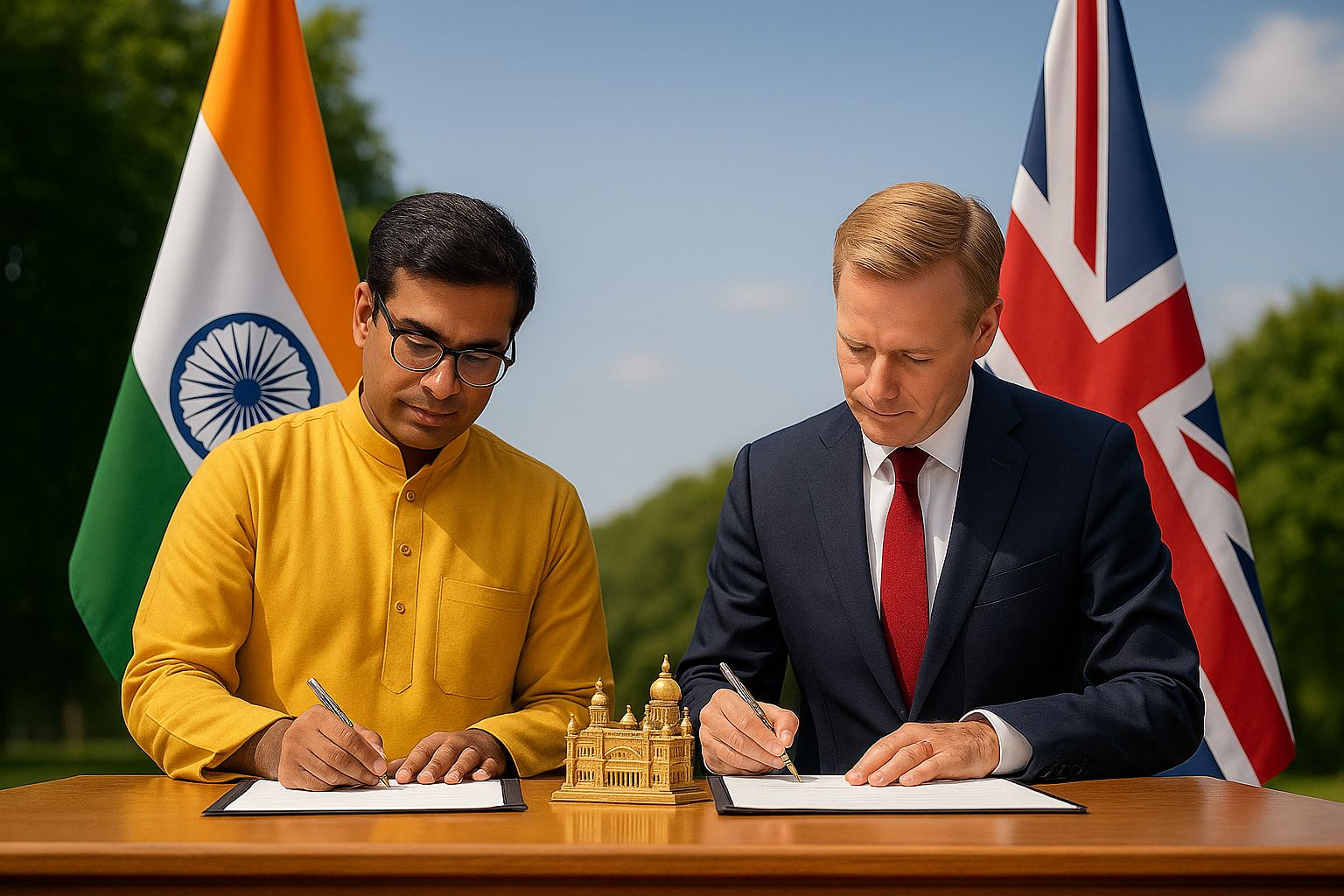
INDIA AND UK SIGN FREE TRADE AGREEMENT STRENGTHENING GI PROTECTION
09/10/2025
After more than three years of extensive negotiations, India and the United Kingdom have finalized a landmark Free Trade Agreement (FTA). Signed on July 24, 2025, by Indian Trade Minister Piyush Goyal and his UK counterpart Jonathan Reynolds at Prime Minister Keir Starmer’s Chequers estate in Aylesbury, the agreement coincided with Prime Minister Narendra Modi’s two-day official visit to the UK. This FTA marks India’s first major trade partnership in over a decade and is projected to boost annual bilateral trade by US$34.5 billion.
While the FTA is expected to create economic opportunities, intellectual property (IP) provisions were a significant point of contention during the negotiations. Two issues drew particular attention:
-
Patent Term Extensions – Innovator companies pressed for provisions allowing patent term extensions to compensate for delays in the Indian Patent Office’s examination process, particularly concerning pharmaceutical patents. India, however, resisted such provisions to safeguard its US$25 billion generic pharmaceutical industry, which supplies around 20 percent of global affordable medicines.
-
Data Exclusivity – Another demand was the protection of clinical trial data by granting exclusivity periods, thereby preventing generic manufacturers from using such data for drug approval. India strongly opposed this, citing concerns over delayed access to affordable medicines.
The final text of the India-UK FTA excluded both patent term extensions and data exclusivity provisions. This outcome preserves India’s policy stance of prioritizing access to affordable medicines over stricter intellectual property standards, aligning with its global role as the “pharmacy of the world.” In fiscal year 2023 alone, India exported US$25.36 billion worth of generic medicines, with major markets including the US and sub-Saharan Africa.
Beyond the IP chapter, the FTA offers broad trade benefits. Most Indian exports to the UK will be exempt from import duties, while tariffs on British products entering India—including high-demand goods such as whisky and gin—will be significantly reduced. Additionally, India’s geographical indication (GI) products will enjoy strengthened protection, and the UK will gain preferential access to Indian high-end cultural products.
The India-UK FTA is not only a strategic trade partnership but also a reaffirmation of India’s stance on balancing intellectual property rights with public health concerns. By rejecting provisions for patent term extensions and data exclusivity, India has successfully safeguarded its thriving generics industry while opening new avenues for bilateral trade. Once ratified by the British Parliament, this agreement is expected to serve as a model for India’s future trade negotiations, combining economic growth with equitable access to medicines.
NANDINI KOHLI